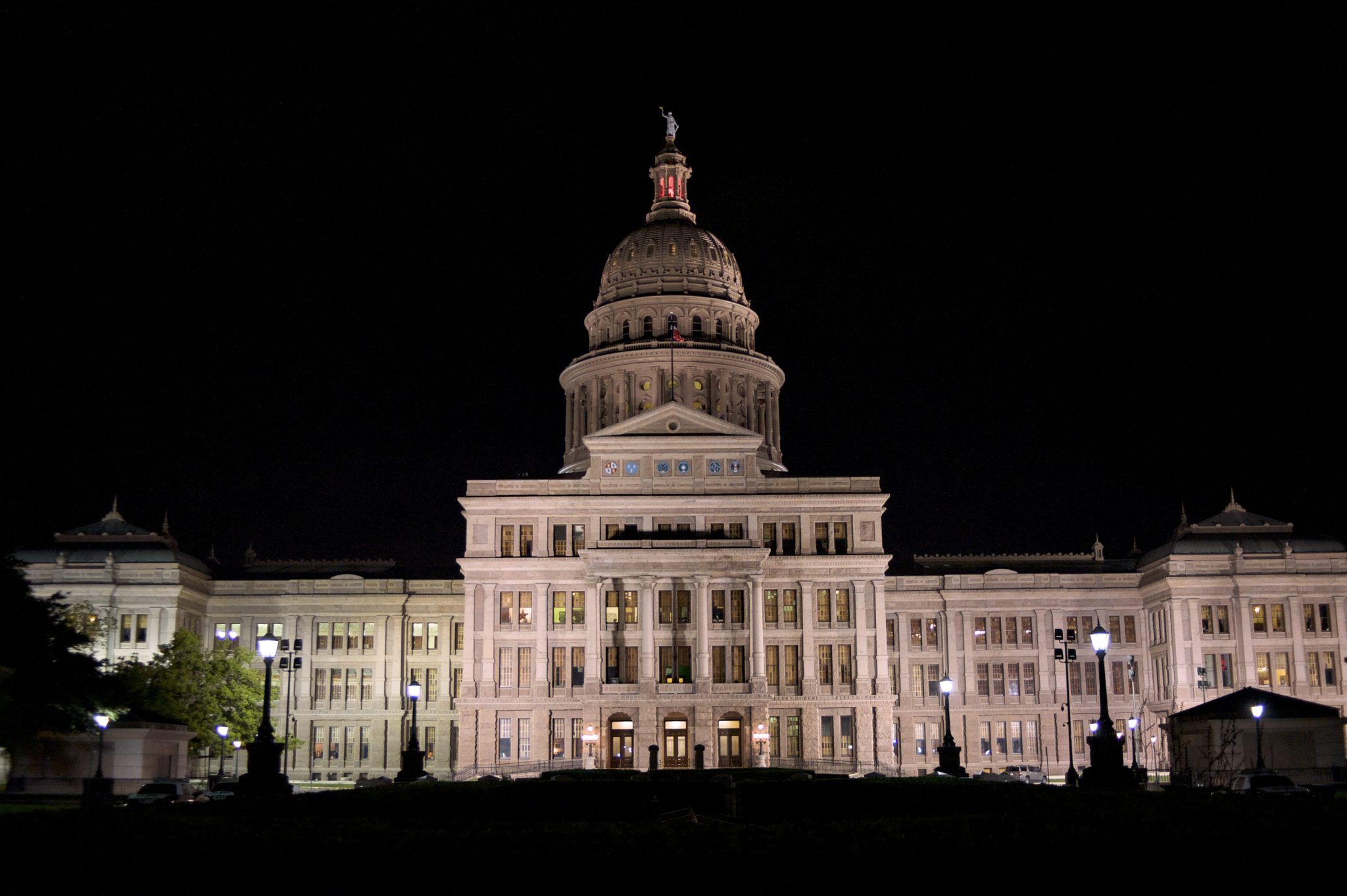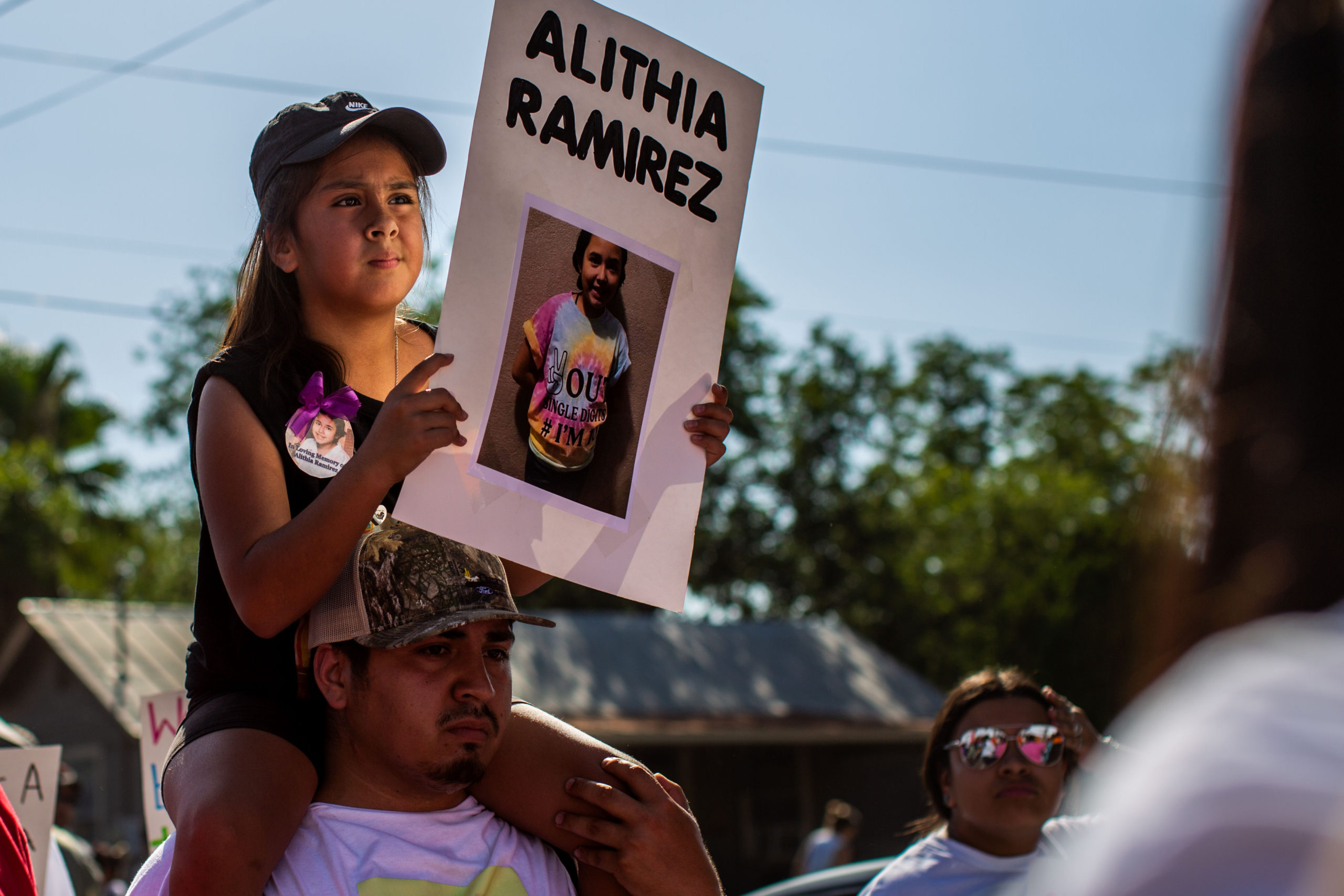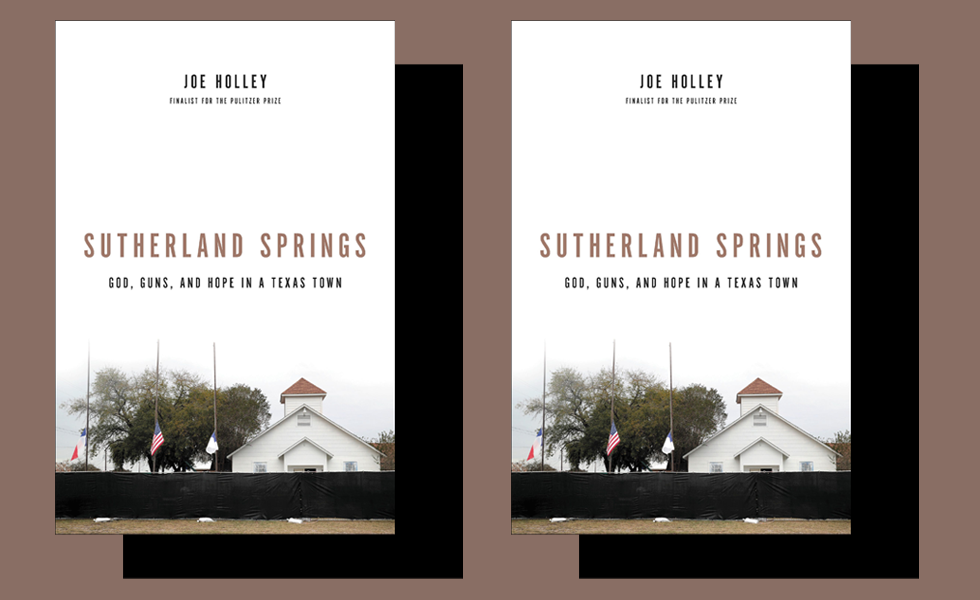This story was originally published by The Trace, a nonprofit newsroom covering gun violence in America. Sign up for its newsletters here.
When Rodney McIntosh saw the pistol, his instincts kicked in. He grabbed the armed man’s hand, shoved it down, and pushed him back into his car. It wasn’t McIntosh’s first time in a conflict on the verge of becoming a shooting. It’s his job. “You can’t do this in broad daylight,” McIntosh recalled telling the young man. If he’d pulled the trigger that day, prison wouldn’t be the only concern. “Someone is going to come shoot you, too,” McIntosh told him.
A community activist, pastor, and mentor, McIntosh, 44, leads a small team battling violence in east and south Fort Worth, using his experiences as a former gang member to mentor young men and mediate conflicts before they devolve into gun violence. The fledgling organization, called VIP Fort Worth, is one of a number of programs that could benefit from a new bill that would help grow and support community-based violence prevention and intervention programs in Texas.
House Bill 1580 would establish a statewide office focused on community violence intervention and prevention. The proposal is novel because the office would be housed in the state’s public health department, not a law enforcement agency — for example, California, a pioneer in state funding for violence prevention, administers its grants through its state Department of Corrections. While the placement of an office might sound like a technical issue, supporters say this approach matters because it would incentivize more holistic strategies, developed with the communities most affected, that don’t use incarceration as a catch-all solution. A shift to community-based prevention reflects the needs of the moment, as Texas tries to quell surging violence without placing that responsibility solely on law enforcement. The statewide office would be the first of its kind in the South, and among the first in the country.
This is Texas’ first legislative session since back-to-back mass shootings in El Paso and Midland-Odessa in August 2019, twin tragedies that pressured officials to act. Since then, reformers have tempered their hopes for change: In 2020, Republicans performed better in Texas’ elections than expected, emboldening the state party. The bill is one of at least 20 related to violence prevention and gun reform, and also comes after some of Texas’ biggest cities saw homicides spike by as much as 60 percent. Though the Legislature is juggling proposed responses to several crises, advocates say this bill has better prospects than other gun control bills. They say that’s because the violence prevention bill doesn’t constrain gun rights.
The bill’s supporters are drawing inspiration from VIP Fort Worth and similar community-led initiatives. In VIP’s case, mediating conflicts before they turn violent is a large part of the job, but the team does more than immediately respond to crises. It also includes long-term stabilization support for young men believed to be involved in the cycle of violence. McIntosh and four outreach workers — called community change agents —connect young men to social and health services, and employment and educational opportunities.
“Nothing worth doing is easy,” McIntosh said. “I wish somebody had helped me, and not just me, some of my partners and friends that I’ve lost to gun violence and gangs. I wish somebody would have come and offered us a way out.”
Of the seven largest cities in Texas, six saw significantly more homicides in 2020 than in 2019, bringing new urgency to the battle against gun violence. In Houston, Texas’ biggest city, murders rose 43.7 percent in 2020, according to police statistics. In Dallas and Arlington, murders rose 24 and 35 percent, respectively. But none of the increases matched those of Fort Worth, where the number of murders increased 60 percent, from 70 in 2019 to 112 in 2020. Seventy-nine percent of the homicides in Fort Worth in 2020 involved guns, according to data from the Fort Worth Police Department.
The increase in violence and the calls for a national reckoning with systemic racism in the criminal justice system are leading states and cities — even in typically conservative jurisdictions — to explore ways to reduce gun violence outside of traditional policing. In New York City, officials are rolling out pilot programs to replace police with EMT personnel and social workers as the primary first responders to mental health crises. In San Francisco, officials pledged to invest in health and workforce training programs after cutting the police budgets. About 150 miles south of Fort Worth, in Austin, city leadership made some of the most dramatic changes in the country, cutting the city’s police budget by a third and redirecting part of the funding to social safety net programs.
In Fort Worth, where the mayor is a Republican and the city’s leadership skews conservative, changes to public safety haven’t been quite as drastic. The city upped its Police Department budget in September, but City Council members also invested in an alternative approach to violence reduction, approving $287,500 for VIP Fort Worth. The proposal, championed by City Councilwoman Kelly Allen Gray, found support across the political spectrum. McIntosh said he was surprised: “We did it in Fort Worth, a Republican city, out of all places.”
Allen Gray and other local leaders began thinking about bringing a violence prevention program to the city months before the tumult of 2020. Though gun violence has been pronounced in Fort Worth for years, several high-profile shootings in summer 2019 grabbed headlines, sparking conversation about alternative solutions. One incident in particular rocked Allen Gray’s City Council district: A college freshman on the way to visit her dad was killed as an innocent bystander in a retaliatory shooting.
While the city grappled with that and several subsequent shootings, police faced accusations of brutality around the killing of JaQuavion Slaton — and, a few months later, Atatiana Jefferson. McIntosh had begun speaking at City Council meetings, pleading for change and grabbing the attention of Allen Gray and her colleagues. Allen Gray, whose late husband was a Fort Worth police officer, also heard her son one night after a fraught council meeting: “For my own son to have this fear of the police was very disheartening for me because my husband loved being a neighborhood patrol officer.”
“This is not something that you can arrest your way out of,” Allen Gray said. “We want [police] to be everything when really their job is to serve and protect. How do we put people in a place to take that piece away from the police to bring back trust in the community?”
Over the following months, Allen Gray, McIntosh, several police officers, and community members began researching some possibilities. They traveled to Richmond, California, to see the Advance Peace program — a street outreach anti-violence effort credited with cutting firearm homicide in half — in action. They also visited San Antonio in October 2019, where a similar strategy, Stand Up SA, had successfully contributed to reducing shootings in target neighborhoods. That program uses a public health approach, modeled after Cure Violence, which treats gun violence as a disease that can be treated by interrupting transmission by focusing on those who are at the highest risk and changing community norms. They settled on a hybrid model. By February 2020, VIP FW received initial funding from the city and began piloting the program.
By August, despite budget concerns about COVID-19, the city awarded its full funding request of $287,500 for the new fiscal year, which began in October. Officials are beginning to see the fruits of their investment: VIP Fort Worth has engaged more than 260 community members and 43 people suspected of being involved in shootings. Based on the conflicts they’ve mediated, they believe they stopped at least 25 shootings while responding to 20 others to prevent retaliation.
Proponents of the bill to establish a statewide office devoted to violence prevention hope the plan will find support among state legislators as it has in Fort Worth. If approved, the State Office of Community Violence Prevention and Intervention would be housed within Texas’ Department of State Health Services. It would be charged with researching the causes and effects of violence, coordinating community-based programs, and administering a grant program to fund local organizations. “Apparently, it’s a novel approach, although I don’t think it should be,” said state Representative Jon Rosenthal, a Democrat from Houston and the bill’s sponsor. “It just makes sense to invest in preventing violent incidents.”
Community-led strategies to combat gun violence are already used in cities and counties across the country. Approaches vary, but like VIP Fort Worth, most use so-called credible messengers from the communities where violence is most endemic. In many cases, as with McIntosh, workers are former members of a gang or formerly incarcerated. The idea is to address the root causes of violence, instead of just the outcomes. In Fort Worth, McIntosh said operating separately from law enforcement has helped reach people who might be distrustful of police. “What gang member do you know who would allow me to walk up and talk to them if they think I’m a snitch or are going to be working with the police?” he said. “If we were thought to be police or working with police, we’d lose that leverage that we have. At that point, this program would be worthless.”
The bill would also support other initiatives like hospital-based violence intervention, which provide immediate aid to victims of violence in the hopes of addressing trauma and reducing the chances of retaliation. Rosenthal said he believes he can make a case to Republican lawmakers that evidence-based, community approaches would benefit the state by reducing long-term costs related to prisons and the state court system. “It costs more to lock people up than it does to give them jobs and to make sure that they have food on the table,” said Amber Goodwin, a Texas native and executive director of the Community Justice Action Fund, which advocates for community-based responses to gun violence and has been involved in advocating for HB1580. “If you attack gun violence to make sure that we’re talking to people before they pick up the gun in the first place, that can actually lead to long-term, systemic change.”
Rosenthal said he was inspired by Maryland’s Violence Intervention and Prevention Program, established in 2018 with bipartisan backing. At least nine states use state money to support community-based efforts, with Virginia and Washington becoming the latest to do so. Nearly all have seen some measurable success, but most of these efforts are managed by law enforcement or criminal justice-oriented agencies. Texas’ would be run by the public health agency.
But some supporters of this approach are skeptical of the attempt to involve the state government in local matters. Allen Gray, who led the push for the VIP Fort Worth program, said she has concerns about the bill and is uncertain about whether to support it. “We’re asking the state of Texas to jump into doing something on the local level,” she said. “I don’t know how well they would do the program or if it would be just one more round of strings.”
McIntosh supports the measure. “If we have an office and their main focus and main goal would be to give funds to GVI programs, then that will lead to change,” he said. “Instead of going and having to apply for grants against so many different organizations, we could really put our attention and focus in one place.”
The legislation may still face an uphill battle in winning over Republican votes — or getting the attention of preoccupied Statehouse leadership. The state is grappling with the fallout from a disastrous winter storm that left much of the state without power for days. COVID-19 is still a major concern. In Texas, the Legislature meets only every two years, and less than 62 days remain this session. “Anything I think that’s going to pass, it’s got to be something I’m willing to crusade for. And this is definitely one of those pieces,” Rosenthal said.
Yet lawmakers are facing pressure from those who want to see some action on gun violence. Democrats who represent El Paso have proposed 19 gun reform bills, including a universal background check proposal and a “red flag” law. Some proposals came directly from the recommendations that Governor Greg Abbott made in a report in 2019.
After those shootings, Abbott and the state’s lieutenant governor, both Republicans, flirted with gun reform measures, initially saying they would consider modest changes. Abbott and Republicans in Texas have since stepped back. In his early February State of the State Address, Abbott didn’t mention gun safety measures or the mass shootings. Instead, he said he wants Texas to be a “Second Amendment sanctuary state.”
Back in Fort Worth, the work that the bill would support has drawn praise from the police, and from the city’s Republican mayor, Betsy Price. “You guys have really been up and running less than a year and had strange environments to work in with COVID,” she said during a meeting of the crime prevention board in February. “I think you’ve done a yeoman’s job. If you’ve stopped one shooting, it’s a great start, but then you clearly stopped others.”



